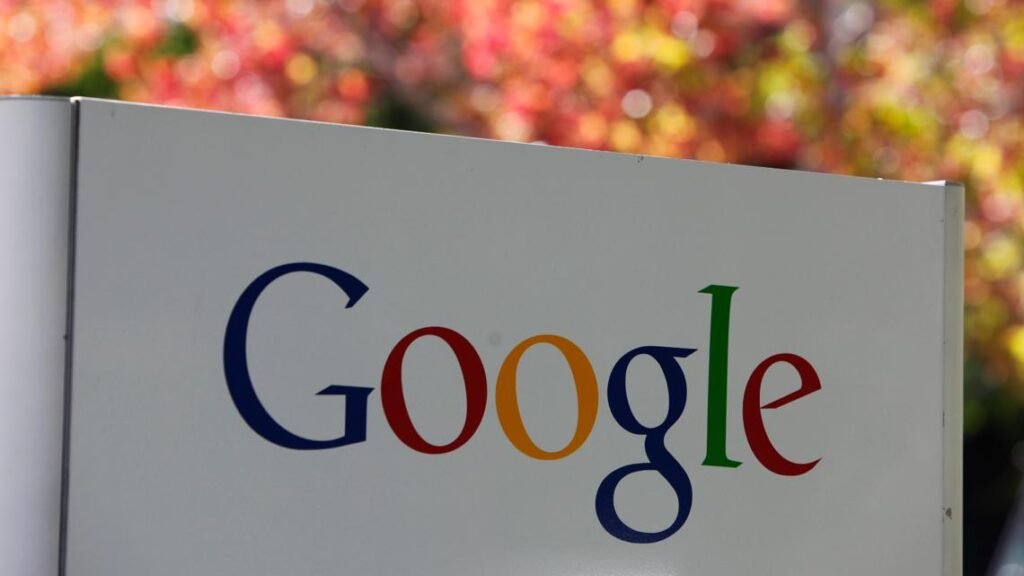Major tech firms, legal experts, and entrepreneurs have expressed their opinions on the case, warning against the Department of Justice’s suggested alterations to Google’s operations.
WASHINGTON — Google is set to return to federal court this Friday as it seeks to combat the U.S. Justice Department’s efforts to dismantle its internet dominance, all while it grapples with a significant transition towards artificial intelligence that could potentially diminish its influence.
The legal and technological challenges confronting Google are central themes that will be explored during the closing statements of a trial that aims to outline the modifications to be imposed on the company following its search engine being deemed an illegal monopoly by U.S. District Judge Amit Mehta last year.
Utilizing evidence presented during a recent three-week hearing, attorneys from the Justice Department will try to convince Mehta to enforce a significant overhaul that would prohibit Google from paying to make its search engine the default option on smart devices, as well as mandate the sale of its Chrome browser.
Google’s legal team is likely to argue that only minimal adjustments are necessary, particularly as the disruption caused by advancements in artificial intelligence is already altering the search environment, paving the way for alternative, conversational search services to emerge from AI startups that are aiming to leverage the Department of Justice’s ongoing case to seize an advantage in this new tech frontier.
“Throughout the weeks of testimony, we heard from various well-funded companies eager to access Google’s technology so they wouldn’t have to innovate independently,” Google’s vice president of regulatory affairs, Lee-Anne Mulholland, noted in a blog post earlier this month. “What was notably absent was an explanation of how the DOJ’s extreme proposals would enhance consumer benefits.”
After the extensive closing arguments, Mehta will deliberate for much of the summer before rendering a decision, which he intends to announce before Labor Day. Google has already pledged to appeal the ruling that classified its search engine as a monopoly, a process it cannot initiate until the judge issues a remedy.
While both parties involved in this dispute acknowledge that AI represents a crucial turning point for the industry’s future, they hold differing perspectives on how this transition will impact Google.
The Justice Department maintains that AI technology alone will not curb Google’s influence, insisting that additional legal constraints need to be applied to a search engine that is the primary driver behind its parent company, Alphabet Inc., being valued at $2 trillion.
Google has already begun implementing AI to evolve its search engine into an answer engine, an initiative that has thus far helped it maintain its status as the internet’s main access point, despite competition emerging from alternatives like OpenAI and Perplexity.
The Justice Department argues that divesting from the Chrome browser, which Google CEO Sundar Pichai played a pivotal role in developing nearly two decades ago, could be one of the most effective strategies to prevent Google from accumulating vast amounts of browser traffic and personal data that could reinforce its dominance in the AI age. Executives from both OpenAI and Perplexity testified last month that they would be keen participants in an auction for the Chrome browser if Mehta mandates its sale.
The discussion surrounding Google’s future has also attracted views from Apple, mobile app developers, legal scholars, and startups.
Apple, which earns over $20 billion each year by making Google the default search engine on its iPhone and other devices, has submitted briefs opposing the Justice Department’s proposed 10-year ban on such lucrative agreements. Apple informed the judge that prohibiting these contracts would deprive it of funds necessary for its own research and could unintentionally empower Google further by allowing the company to retain its funds while consumers would still choose its search engine. The Cupertino, California-based company also noted to the judge that a ban would not incentivize it to develop its own competing search engine.
In various filings, a group of legal scholars asserted that the Justice Department’s suggested divestiture of Chrome would constitute an inappropriate punishment that would lead to unnecessary government intrusion into the business operations of a company. Meanwhile, former Federal Trade Commission officials James Cooper and Andrew Stivers cautioned that another proposal requiring Google to share its data with competing search engines “fails to consider the expectations users have developed over time about the privacy, security, and management” of their personal data.
The App Association, which represents mostly smaller software developers, also advised Mehta against adopting the Justice Department’s proposed changes due to the potential ripple effects across the tech sector.
Restricting Google in the manner envisioned by the Justice Department could complicate startups’ ambitions for acquisition, according to the App Association. “Developers will be overwhelmed by uncertainty” if Google is dismantled, the group contends.
The incubator Y Combinator, which has aided in the creation of hundreds of startups with a combined value of around $800 billion, submitted documents advocating for the significant overhaul of Google, whose vast power has deterred venture capitalists from investing in sectors viewed as being part of the company’s “kill zone.”
Startups “also need the ability to get their products into the hands of users, unencumbered by restrictive agreements and self-preferencing that monopolizes crucial distribution channels. Currently, Google has monopolized the most important distribution methods, stifling competition in the general search and search text advertising markets for over a decade,” Y Combinator stated to Mehta.
Copyright 2025 Associated Press. All rights reserved. This material may not be published, broadcast, rewritten, or redistributed.
